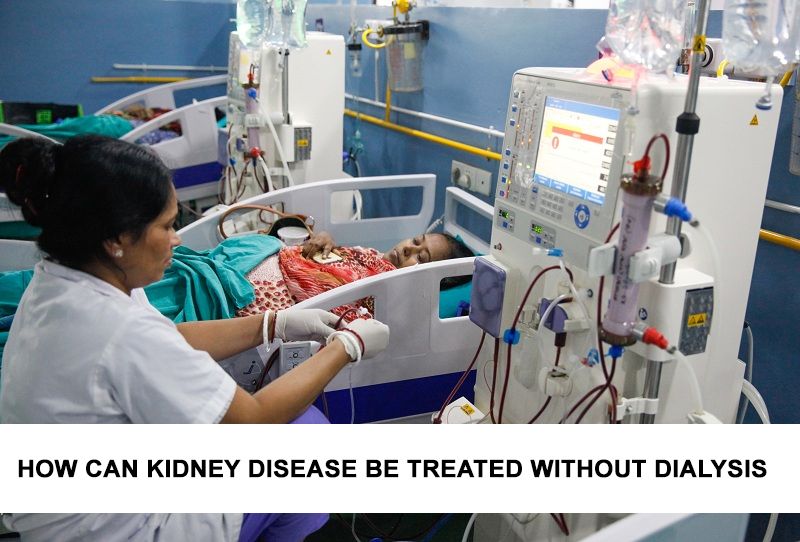
In our health, it’s easy to dismiss tiny signals that something may be wrong, especially if we are busy managing work, home, children, feelings, and then some. But when your kidneys aren’t functioning properly, your body does send up signals. The problem? They’re often subtle, easily mistaken for everyday fatigue, shifts in hormones, or stress.
Kidney problems can creep up quietly, particularly in women. And because the symptoms can resemble those of other conditions like PMS, anemia, or thyroid problems, they often go unnoticed for some time, until the situation becomes dire. And that’s why listening to your body and translating what it’s saying is so important.
So, let’s have an honest, but still gentle, talk about the signs of Ayurvedic treatment for kidney failure in females.
Your kidneys are two small, bean-shaped organs, but don’t let their size fool you; they're multitasking powerhouses. They filter out waste and excess fluid from your blood, help regulate blood pressure, keep your bones healthy, and balance minerals like sodium and potassium. Think of them as your body’s behind-the-scenes clean-up crew. When your kidneys start to fail, waste and fluid build up, and that can affect nearly every part of your body. But unlike a broken bone or a fever, kidney problems don’t always announce themselves loudly. Instead, the signs tend to whisper, especially at first.
Let’s talk about the real-life stuff; the things you might feel, notice, or deal with that could be related to kidney issues.
Yes, we all feel tired sometimes. But if you're feeling drained all the time, even after a full night’s sleep, your kidneys might not be filtering out toxins properly. That buildup can lead to a constant sense of exhaustion. Some women describe it as “walking through fog” or “never feeling fully awake.”
If your rings suddenly feel tight or your ankles puff up by evening, it could be fluid retention. When kidneys aren’t doing their job, extra fluid builds up in the body, and swelling, especially in the lower body, is one of the most common signs.
Pay attention to how often you’re going and how your urine looks. Signs to watch out for include:
While these changes don’t always mean kidney failure, they’re worth checking out.
This one might surprise you! Persistent puffiness, especially in the mornings, can indicate that your kidneys are leaking protein into the urine. Think of it as a red flag that something deeper might be going on.
When fluid builds up in the body and lungs, it can make breathing harder, especially after mild activity. It’s easy to blame this on being “out of shape” or just winded, but it’s a symptom worth noting if it’s new or persistent.
In advanced stages, a buildup of toxins in the blood can mess with your stomach, causing nausea, a metallic taste in the mouth, or a total loss of interest in food. Some women say food starts to taste “off” or they just feel sick after eating.
Your skin is another way your body tells you when something’s wrong. If your kidneys aren’t balancing minerals correctly, you may develop dry, flaky, or itchy skin. It might even feel like no lotion helps.
Even in warm weather, some women with kidney issues report feeling chilly or having cold hands and feet. This could be linked to anemia, which often accompanies kidney problems due to decreased red blood cell production.
Hormonal imbalances caused by kidney dysfunction can sometimes disrupt the menstrual cycle. You might notice irregular periods, heavier flow, or increased PMS symptoms. These changes often go unlinked to kidney issues, but they can be connected.
That scattered, forgetful, can’t-focus feeling? It could be more than just a busy mind. When waste builds up in your system, it can affect mental clarity, memory, and focus.
Let’s be real, women are used to pushing through discomfort. Whether it’s period cramps, headaches, or burnout, we tend to normalize not feeling great. Add to that the hormonal shifts of perimenopause, menopause, or even pregnancy, and it’s easy to chalk up strange symptoms to “just life.”
But kidney disease doesn’t wait. Early detection is key. When caught early, kidney function can often be preserved or even improved with proper care, including Ayurvedic treatment for kidney failure in females, diet changes, or medical treatment.
If any of these symptoms sound familiar, especially more than one at a time, it’s a good idea to check in with your doctor. A simple blood test (to check creatinine and eGFR) and urine test can give a pretty good picture of how your kidneys are doing.
And if you’re more into natural or holistic wellness, you might also consider seeing an experienced Ayurvedic practitioner. Ayurvedic treatment for kidney failure in females looks at kidney health in terms of energy balance (doshas) and can support kidney function through herbs, diet, detox, and lifestyle.
You could also check out Karma Ayurveda for kidney treatment, a trusted name in the space that offers Ayurvedic treatment for kidney failure through personalized care plans and herbal remedies.
Kidney failure isn’t something that happens overnight. Your body whispers before it screams. The key is listening early, especially to the small changes that feel “off.” As women, we’re often the caregivers, the doers, the ones who push through. But your health matters, too. Your kidneys work 24/7 for you; take a moment to work with them. And remember, asking questions, seeking help, and prioritizing your well-being isn’t selfish. It’s self-love.

Certificate no- AH-2023-0186
JAN 05,2023-JAN 04,2026
"Ayurveda is not just a system of medicine; it's a way of life. Connect with us to embrace a lifestyle that nurtures your body, mind, and soul."
Book Consultation Now